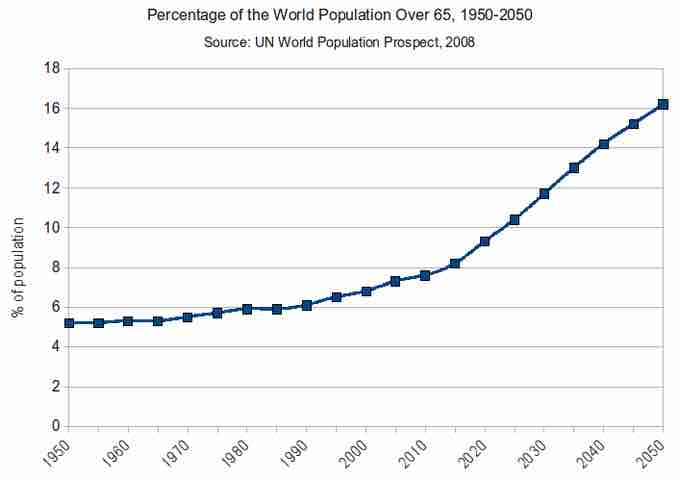All over the world, people are living longer than ever before. However, while the trend of a growing older population appears world over, people in industrialized nations are older than people in non-industrialized nations. According to the Population Research Bureau, the average life expectancy in Africa is 53, in North America is 78, in Latin America is 73, in Asia is 68, in Europe is 75, and in Oceania is 75. Worldwide, about 8% of the total global population is over the age of 65, while about 12% of Americans are over the age of 65.
Some of this difference can be attributed to disparities in health care. Easier access to pervasive biotechnology in industrialized nations means that people live longer. Unfortunately, in some countries HIV/AIDS has ravaged the population to the point where the average life expectancy drops. Most of these countries have lower levels of development and industrialization.
The economic effects of an aging population are considerable. Older people have higher accumulated savings per head than younger people, but spend less on consumer goods. Depending on the age ranges at which the changes occur, an aging population may thus result in lower interest rates and the economic benefits of lower inflation. Some economists see advantages in such changes, notably the opportunity to progress automation and technological development without causing unemployment. They emphasize a shift from GDP to personal well-being.
However population aging also increases some categories of expenditure, including some from public finances. The largest area of expenditure in many countries is now health care, the cost of which is likely to increase dramatically as populations age. This would present governments with hard choices between higher taxes, including a possible reweighing of tax from earnings to consumption, and a reduced government role in providing health care.

Percentage of the World Population Over 65
1950-2050